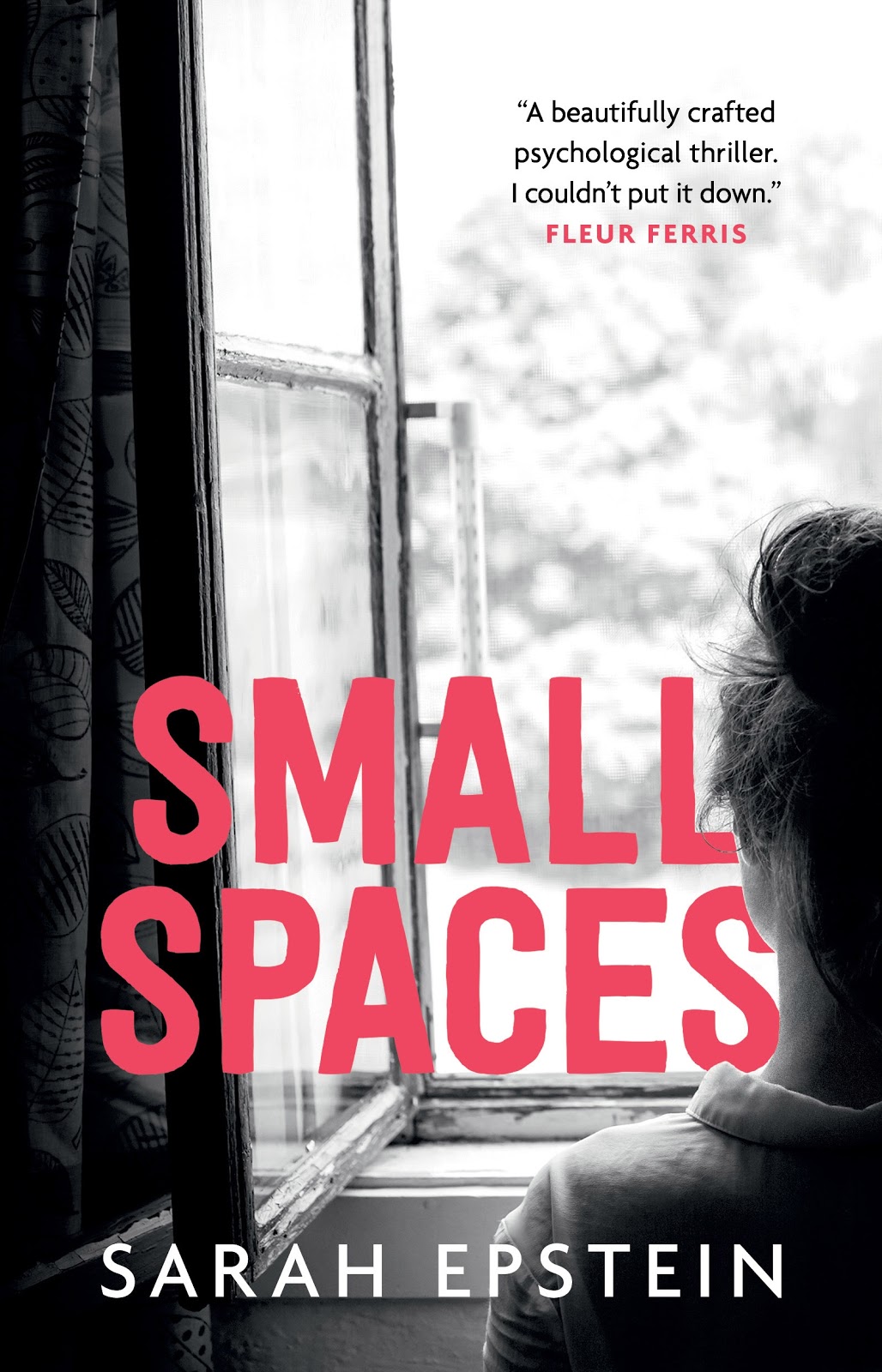Maggie Jankuloska talks to YA writer Sarah Epstein about finding time to write and her debut.
“Writing definitely got shoved to the bottom of the pile and some weeks it didn’t get a look-in at all. A number of times during those years I had to push the writing dream aside because I was just too stretched and sleep-deprived, which is why it took me so long to complete my first manuscript,” says Sarah Epstein, whose debut YA novel ‘Small Spaces’ was published in April this year by Walker Books. ‘Small Spaces’ is the story of Tash, a girl who is traumatised by the presence of her invisible, childhood friend, Sparrow. The novel has been praised for its spine-chilling suspense and clever structuring. Maggie Jankuloska had the opportunity to discuss Epstein’s writing process, her ability to find time for writing as a working mother and the pursuit of creative ambitions.
MJ: Was there a moment when you realised that you needed to prioritise your writing and that is was more than just a passion project? Was this an easy decision?
SE: I think when I finished my first manuscript and it was getting positive responses from early readers, it gave me a lightbulb moment of ‘Hang on, maybe I can actually write’. This gave me the momentum to complete my second novel and put it out on submission, but I still had to slot writing in wherever I could fit it after kids and my graphic design work. I only really started telling people I was a writer after I signed with my former literary agent, which was probably the turning point in me prioritising my writing. My manuscript was being considered by large US publishing houses, and I realised that was pretty significant for a wannabe author. But it became a constant battle between my day job and making more time to write – there just weren’t enough hours in the day.
Only recently did I make the decision to close my design business and focus solely on writing, which was a pretty big deal for me. I had a few stressful weeks after the closure where I wondered whether I’d made the right decision, but ultimately, I knew it was time. Writing has played second fiddle long enough.

MJ: How would you describe your writing process for ‘Small Spaces’?
SE: I’m a plotter, so I generally like to have most of the story worked out before I start drafting, or at the very least most of the key scenes. For Small Spaces I came up with a hook first and played around with one-sentence loglines because I wanted to make sure the premise of the story was strong. Then I started to think about who the main players in this story would be, why they were behaving the way they were and what they wanted, and this kickstarted ideas for the plot and also the title. I always need to work out what the climax of my story will be pretty early on or else I have a lot of trouble getting started in the opening chapters. Once I had a general idea of how the story would end, I started writing scenes as they came to me.
MJ: Emerging writers and artists can often be cynical about their creative projects and to doubt their abilities. What was the biggest obstacle you had to overcome while writing?
SE: Rejection. Always rejection. It’s really hard to keep going when you’re exhausted and juggling so many things to chase this dream, and all you’re getting is responses like ‘Not for us’ and ‘I couldn’t connect with this’. Even worse is when agents and editors don’t bother getting back to you at all. I had a solid year of publisher rejections for my second manuscript and it was so hard to rally and start working on something new. It felt like, what’s the point?
Why would I go through all that hard work and sacrifice again only to have another manuscript pummelled with rejection after rejection?
I was a hundred pages into the first draft of Small Spaces when I showed it to my former agent, and she just didn’t get what I was doing with the story. She asked for changes I didn’t agree with and it became clear we’d have to part ways because she wanted it to be a different type of book. (Incidentally, those first hundred pages appear in my published book virtually unchanged from what I showed that agent). It was a massive blow to be agent-less again after the whole drawn out submission journey with my second manuscript. I was starting from the bottom again and it felt like another massive rejection. By this stage my ego and confidence had been battered so much, it took months to find it in me to complete Small Spaces and somehow have the courage to put it out on submission. I’m grateful now that I did, but the truth is I almost gave up more than once.

MJ: Is ‘busyness’ a good enough reason for forsaking creative ambitions? How can more writers find time for their writing?
SE: Everyone’s situation is different and I can certainly relate to those who are busy with kids, day jobs, school or study, and how much of an impact that has on your energy levels. Sometimes your brain is complete mush by the end of the day and feeling creative is impossible. Finding time to write often means sacrificing sleep or lunch breaks or family time, and then it comes down to how much you really want it, because you have to find those backup reserves of energy when most people are just kicking back and watching TV.
For me, I sacrificed sleep to get my first three manuscripts written because there was just no other opportunity in my day to write. I worked on Small Spaces after my kids went to bed, between the hours of 9pm and 2am most days of the week. Some writers haul themselves out of bed at 5am and bang out 500 or 1000 words in the morning before leaving for work. If your life is hectic, you have to find those pockets of time and jump in.
In saying that, some days (or weeks even) you’ve just got to give yourself a break from writing if you need it. Life’s messy and all sorts of things can pop up to derail your planned writing time and productivity. With any type of creative project, consistency is key. Just keep turning up at the keyboard when you can and chip away.
For more information about Sarah Epstein and ‘Small Spaces’ visit: https://sarahepsteinbooks.com/
Maggie Jankuloska
Maggie Jankuloska is a Macedonian-born and Melbourne-based writer. She is the recipient of the 2018 Maurice Saxby Creative Development Program. Her past work has appeared in Award Winning Australian Writing 2016, The Victorian Writer, Feminartsy, n-SCRIBE and more. Follow Maggie on Twitter - @maggiejank or on her website www.maggiejankuloskawriter.wordpress.com.

